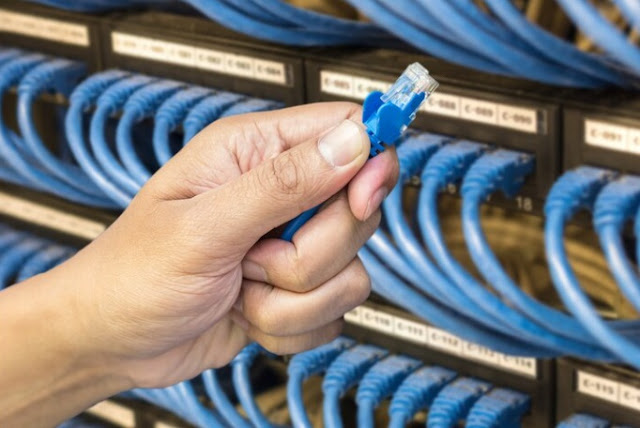In an era where bulk data processing which are lifeblood of
businesses, ensuring its security is crucial. While we often provide attention to
cybersecurity measures like firewalls and encryption, one
overlooked aspect of data security is the physical infrastructure. This cabling
connects your devices and systems. In this blog, we'll delve into the
importance of secure cabling practices in safeguarding your data.
Physical Security:
Imagine your network cabling as the circulatory system of your
organization, carrying vital information to its various parts. A compromised
cable can lead to data breaches and disruptions. While cyber security measures
like firewalls and antivirus software are crucial, neglecting the physical
security of your cabling infrastructure can leave your organization vulnerable
to data breaches and disruptions. Cabling services in New Jersey listed some ways in which
physical security breaches can occur:
- Unauthorized Access - Inadequate physical security
measures can allow unauthorized individuals to gain access to your cabling
infrastructure, leading to potential data breaches.
- Tampering - Malicious actors may physically tamper with
cables, intercept data, or disrupt network connectivity.
- Data Theft - Vulnerable cabling can be an easy target
for data thieves who tap into your network to steal sensitive information.
The Role of Secure Cabling Practices:
To mitigate such risks, it's essential to implement secure
cabling practices. Here's how:
Controlled Access - Restrict access to your cabling
infrastructure by implementing physical security measures such as locked server
rooms and cabinets. Cabling
Company in New Jersey offer reliable services and suggest users
use security cameras to monitor access and detect suspicious activities around
cabling areas.
Cable Pathways - Organize and secure cable pathways to prevent
accidental damage or tampering. Keep cables away from high-traffic areas and
potential hazards. Use cable trays and conduits to protect cables from physical
and environmental damage.
Cable Encryption - Implement encryption technologies to protect
data transmitted over your cabling infrastructure. Encryption ensures that the
intercepted data remains unreadable even if a cable is tapped.
Regular Audits and Inspections - Conduct regular audits and
inspections of your cabling infrastructure to identify vulnerabilities, damaged
cables, or signs of tampering. Promptly address any issues discovered during
audits to maintain the integrity of your cabling.
Cable Management - Proper cable management ensures a tidy
workspace and reduces the risk of accidental damage. Well-organized cables are
less likely to be inadvertently disconnected or damaged during routine
maintenance.
Employee Training - Train your employees on the importance of
physical security and secure cabling practices. Encourage them to report any
suspicious activities or cable-related issues promptly.
Final words
Secure cabling practices are an integral part of a comprehensive
data security strategy. Suppose you are searching for secure cabling services.
In that case, you can contact Network
Data Repair Contractor New Jersey, where you can safeguard your data
and ensure the reliability of your network.






No comments:
Post a Comment